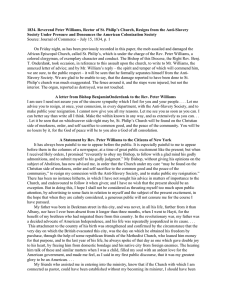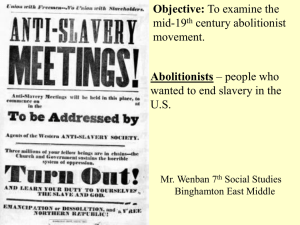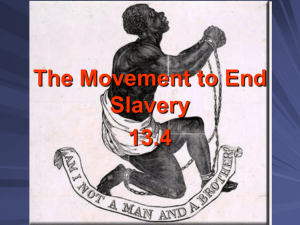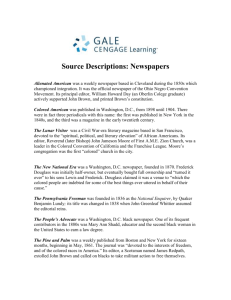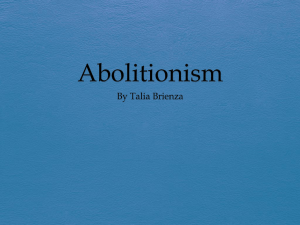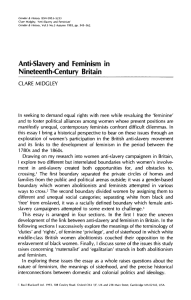Anti-Slavery acknowledges that we live in an unequal society in
advertisement
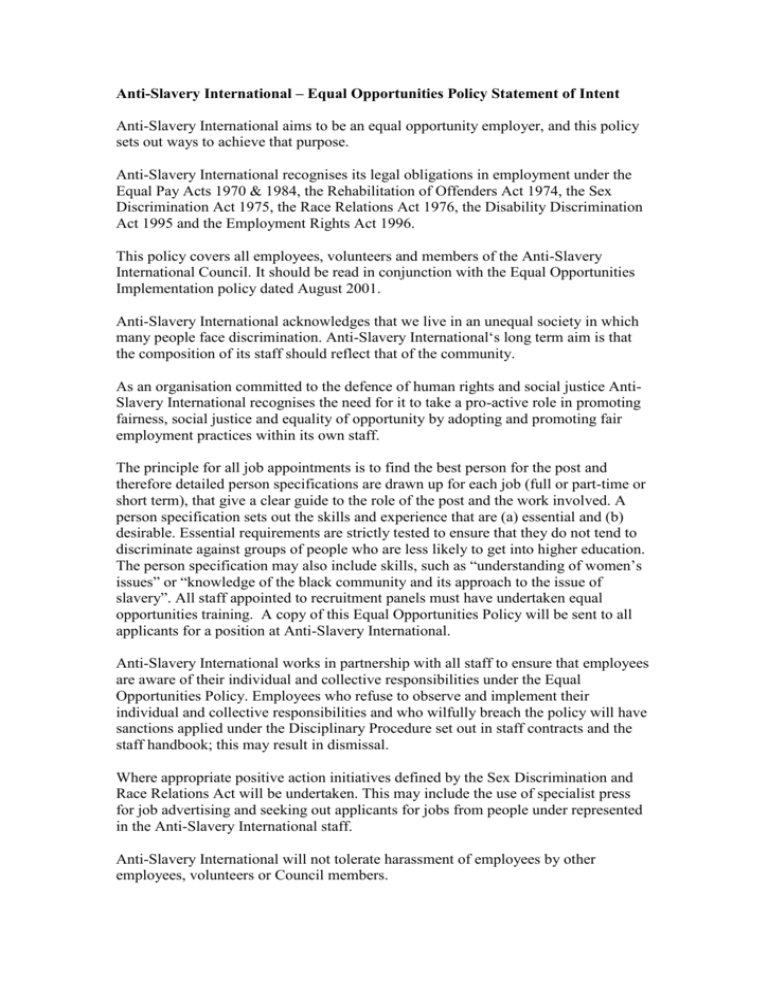
Anti-Slavery International – Equal Opportunities Policy Statement of Intent Anti-Slavery International aims to be an equal opportunity employer, and this policy sets out ways to achieve that purpose. Anti-Slavery International recognises its legal obligations in employment under the Equal Pay Acts 1970 & 1984, the Rehabilitation of Offenders Act 1974, the Sex Discrimination Act 1975, the Race Relations Act 1976, the Disability Discrimination Act 1995 and the Employment Rights Act 1996. This policy covers all employees, volunteers and members of the Anti-Slavery International Council. It should be read in conjunction with the Equal Opportunities Implementation policy dated August 2001. Anti-Slavery International acknowledges that we live in an unequal society in which many people face discrimination. Anti-Slavery International‘s long term aim is that the composition of its staff should reflect that of the community. As an organisation committed to the defence of human rights and social justice AntiSlavery International recognises the need for it to take a pro-active role in promoting fairness, social justice and equality of opportunity by adopting and promoting fair employment practices within its own staff. The principle for all job appointments is to find the best person for the post and therefore detailed person specifications are drawn up for each job (full or part-time or short term), that give a clear guide to the role of the post and the work involved. A person specification sets out the skills and experience that are (a) essential and (b) desirable. Essential requirements are strictly tested to ensure that they do not tend to discriminate against groups of people who are less likely to get into higher education. The person specification may also include skills, such as “understanding of women’s issues” or “knowledge of the black community and its approach to the issue of slavery”. All staff appointed to recruitment panels must have undertaken equal opportunities training. A copy of this Equal Opportunities Policy will be sent to all applicants for a position at Anti-Slavery International. Anti-Slavery International works in partnership with all staff to ensure that employees are aware of their individual and collective responsibilities under the Equal Opportunities Policy. Employees who refuse to observe and implement their individual and collective responsibilities and who wilfully breach the policy will have sanctions applied under the Disciplinary Procedure set out in staff contracts and the staff handbook; this may result in dismissal. Where appropriate positive action initiatives defined by the Sex Discrimination and Race Relations Act will be undertaken. This may include the use of specialist press for job advertising and seeking out applicants for jobs from people under represented in the Anti-Slavery International staff. Anti-Slavery International will not tolerate harassment of employees by other employees, volunteers or Council members. Anti-Slavery International applies a Job Evaluation procedure, which takes into account the principle of equal pay for work of equal value. Anti-Slavery International operates a maternity leave scheme and also offers limited paternity leave. All employees and long-term volunteers are eligible for appropriate training opportunities. Special leave is available for cultural or religious observance. Any employee who wishes to complain about the application or non-application of the Equal Opportunities Policy may: Contact her/his team leader Raise the matter with the Director, Deputy Director or Chair The Director is responsible for the effective implementation of Anti-Slavery International’s Equal Opportunities Policy. Anti-Slavery International August 2001
